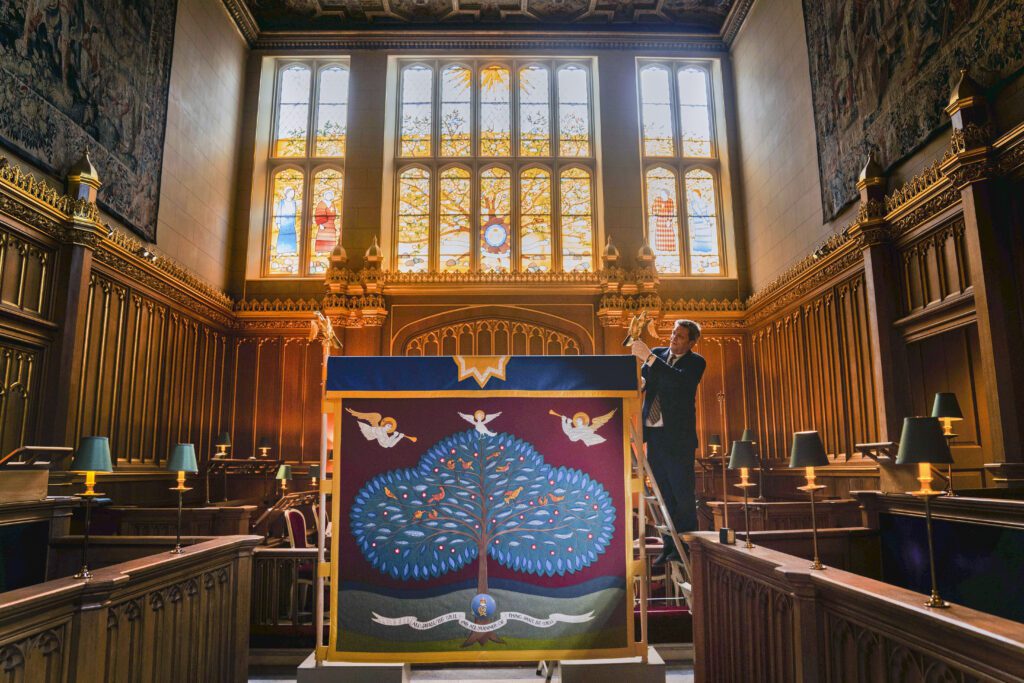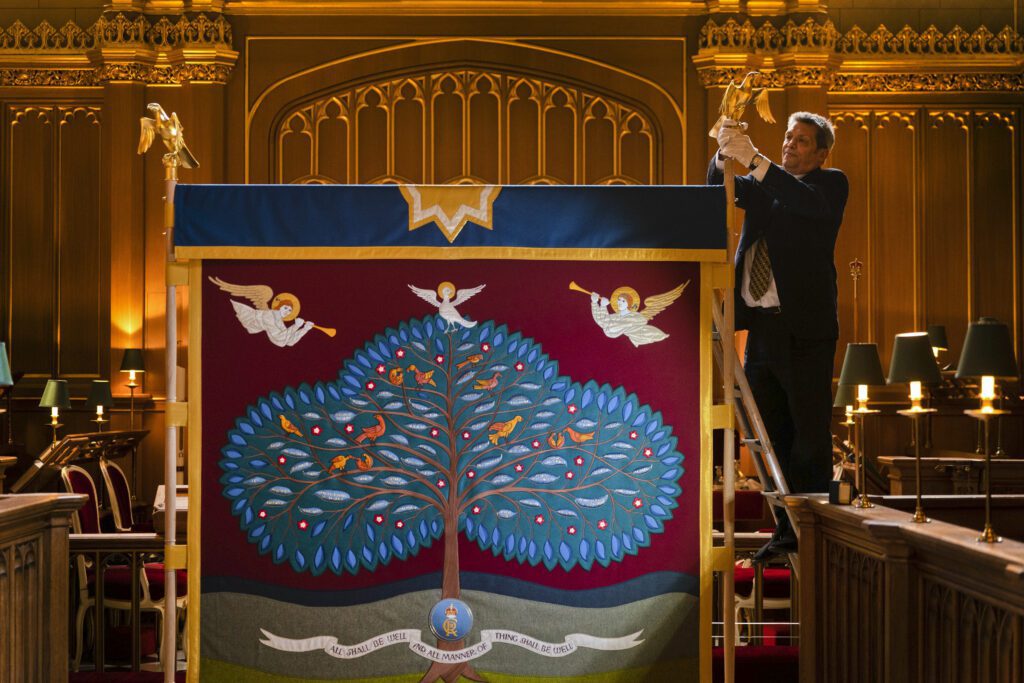UK textile manufacturers unite for Coronation Anointing Screen
01/05/2023
A screen designed for the Anointing of His Majesty The King during the Coronation demonstrates that the vibrant UK textile manufacturing industry is “alive, well and thriving”, said James Gaselee from The Weavers’ Company. It has been designed and manufactured through a unique collaboration of UK specialists, including many UKFT members.

Credit: Victoria Jones/PA Wire
The screen will be used during the most sacred moment of the Coronation, the Anointing of His Majesty The King, and combines heritage craft with contemporary skills and techniques.
The screen has been gifted for the Coronation by the City of London Corporation and participating Livery Companies, the City’s ancient and modern trade guilds. His Majesty The King is a keen advocate and supporter of the preservation of heritage craft skills, and the Anointing Screen project has been a collaboration of these specialists in traditional crafts, from those early in their careers to artisans with many years of experience.
The main fabric is wool which was woven, spun and dyed by AW Hainsworth in Leeds. The applique wool fabrics were spun by Camira Fabrics in Huddersfield and R Gledhill in Delph; woven at Camira Fabrics in Huddersfield and John Spencer Textiles in Burnley for Ian Mankin; and finished at Camira Fabrics and WT Johnson & Sons in Huddersfield. The linen applique fabric was woven at John Spencer Textiles in Burnley and finished at H&C Whitehead in Brighouse.
James Gaselee from The Weavers’ Company said: “The Livery Movement is honoured to be able to provide the screens which will be visible to millions around the world at a key moment in the Coronation ceremony. Livery Companies have a long association with and support for the Crown, and this project is a collaborative effort involving many of the liveries and talented craftspeople. Another important aspect for The Weavers’ Company is that the screen helps to demonstrate that the UK textile manufacturing industry is alive, well and thriving.”

Credit: Victoria Jones/PA Wire
The screen was designed by iconographer Aidan Hart and brought to life through both hand and digital embroidery, managed by the Royal School of Needlework. The central design takes the form of a tree which includes 56 leaves representing the 56 member countries of the Commonwealth.
The individual leaves have been embroidered by staff and students from the Royal School of Needlework, as well as members of the Worshipful Company of Broderers, Drapers and Weavers.
The outline of the tree has been created using digital machine embroidery by Digitek Embroidery. This machine embroidery was completed with sustainable thread, Madeira Sensa, made from 100% lyocell fibres.
Anne Butcher, Head of Studio and Standards at the Royal School of Needlework, said: “It has been a wonderful collaborative project to be involved with, and an exciting celebration of craft techniques. The leaves were a particular pleasure as they were worked on by multiple embroiderers. To help the leaves stand out, we placed them over padding to give them an extra lift from the branches, stitched the names of the countries with gold thread, and then used a dark blue and further gold thread for the edging.”
About the UK Textile Industry
The UK’s textile manufacturing sector produces £5.8bn of materials, ranging from the world’s most sought-after cashmere to the finest worsted wool, luxurious tweeds, silk and distinctive tartans. In addition to the world-renowned apparel fabrics, the UK textile industry also produces high quality fabrics and accessories for the home and contract interiors sectors, plus a wide range of technical textiles and performance fabrics that are used in industries such as medical, defence and aerospace.
There are more than 4,200 businesses manufacturing textiles in the UK – an increase of 12% in the last five years – in a sector that employs more than 64,000 people.
UK made fabrics and yarns are highly sought after by leading brands, designers and retailers and the UK exports £3bn of textiles to almost every country in the world.
The UK has a strong textile heritage and a promising future – with more than 4,800 people studying textiles at university each year on courses including textile design, textile technology and textile engineering.
